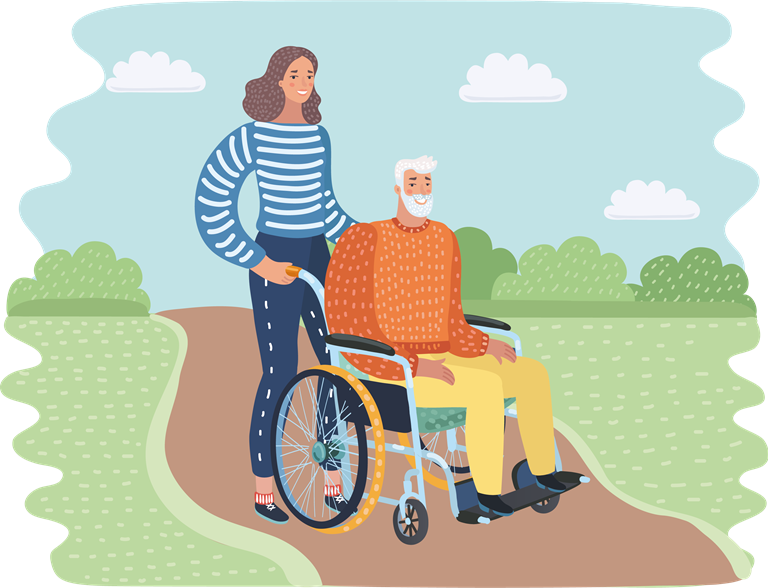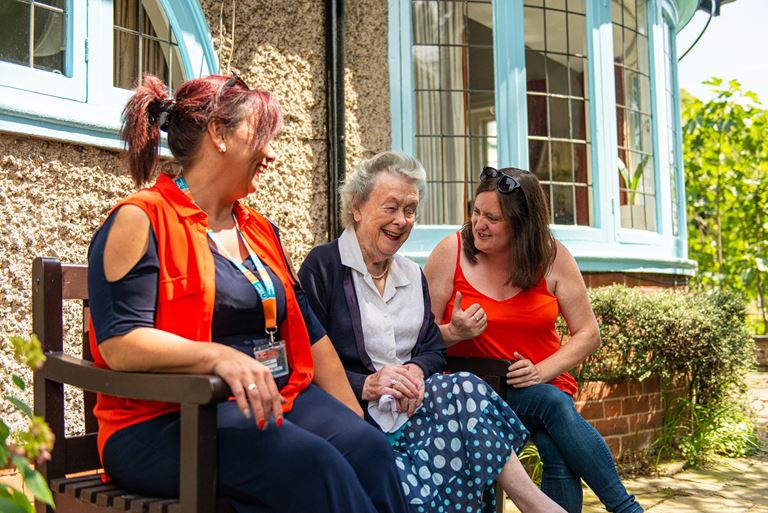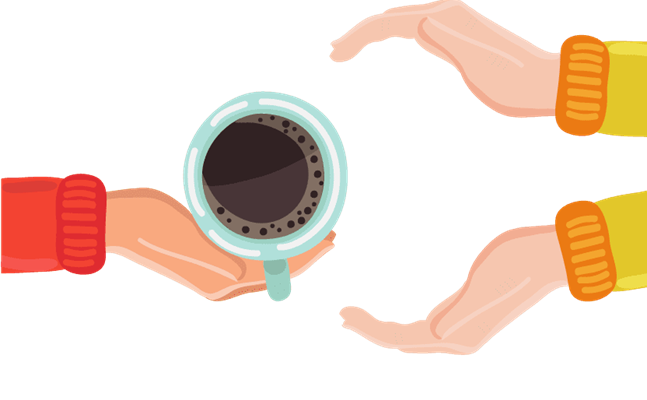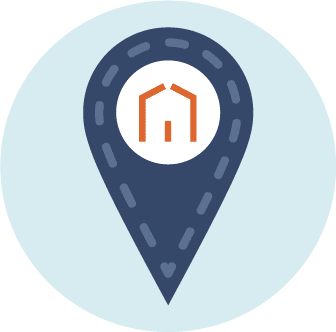
Neuromuscular Disorders: Treatment and Management in Leeds East, Roundhay to Rothwell
Highly-personalised care from a dedicated, professional and consistent team.
- Leeds East
- Our Services
- Specialist Care
- Neuromuscular Disorders
Types of Neuromuscular Disorders
Neuromuscular disorders are conditions which affect the nerves that pass from the brain and spinal cord to the muscles. They also affect the muscles themselves, and the complex neuromuscular junction between each nerve and muscle (myasthenic conditions).
There are many different types of neuromuscular disorders, most of which require some level of homecare and support/support or homecare. Neuromuscular conditions are complex because they can affect both motor skills and cognition.
The types of neuromuscular disorders that our CareGivers in Leeds East, Roundhay to Rothwell can support include:
- Motor Neurone Disease
- Multiple Sclerosis (MS)
- Amyotrophic lateral sclerosis (or Lou Gehrig’s Disease)
- Spinal and Duchenne muscular dystrophy
Specialist care requirements may vary between different conditions and from person to person, based on their symptoms.
That’s why we define personalised care plans for each individual, whatever their neuromuscular condition may be.
Get in touch with Right at Home Leeds East, Roundhay to Rothwell to discuss the type of care that you’re looking for.
Many of our Clients and their loved ones rely on our MD or MS homecare.
Here’s what just one Client had to say about our service:

Pauline N | Mother of Client"The care and support my son receives is excellent. He always looks forward to his carer coming to take him out and we can relax knowing he will be taken care of. We have no hesitation recommending this company from our experience."
Our specialist care services for neuromuscular disorders in Leeds East, Roundhay to Rothwell
Whether you’re looking for homecare for MS patients or homecare for muscular dystrophy, Right at Home Leeds East, Roundhay to Rothwell can help.
When it comes to specialist homecare services for neuromuscular disorders, we can help with:
- Transport assistance
- Light housekeeping
- Safety supervision
- Personal care and grooming
- Medication reminders
- Support getting dressed
- Mental stimulation
- Laundry services
We have a team of highly trained Carers in Leeds East, Roundhay to Rothwell who offer trusted support for Clients with muscle wasting conditions.
Our CareGivers are experienced in using a range of specialist equipment that may be needed as part of an MD home care routine. Our services also incorporate care plans for multiple sclerosis in-home care, and other common neuromuscular conditions.
Alongside our specialist neuromuscular disorder care, For those who may need extra assistance, we also offer full time, live-in care, for those who may need extra assistance.
Respite care available in Leeds East, Roundhay to Rothwell, also proves invaluable for family carers to take a break from supporting their loved ones.
Get in touch with Right at Home Leeds East, Roundhay to Rothwell to discuss your homecare needs.
FAQs about our homecare for neuromuscular disorders in Leeds East, Roundhay to Rothwell
What causes neuromuscular disorders?
Many neuromuscular disorders are inherited or caused by a gene mutation. An affected individual might have no family history of a similar condition.
Neuromuscular conditions may stem from autoimmune or hormonal disorders, or even/perhaps a viral infection. However, in many cases, unknown factors can play a big part in leading to a condition.
No matter the cause, the important thing is to find ways to manage and to adjust to the various symptoms and effects. Our specialist CareGivers in Leeds East, Roundhay to Rothwell can help.
What are common symptoms of neuromuscular disorders?
We are sympathetic to the effects living with a neuromuscular condition can have on the lives of our Clients.
Symptoms and effects of neuromuscular disorders are not always consistent.
This is why it’s important for our CareGivers to work with you to come up with an individual care plan that meets the Client’s needs.
However, some common MS symptoms and effects associated with other neuromuscular diseases can include:
- Muscle wastage
- Muscular weakness
- Muscle pain
- Muscular spasticity
- Difficulty swallowing
- Difficulty breathing
As a result of these symptoms, it’s often difficult for people with MS, or those living with muscular dystrophy to live independent lives.
That’s why our homecare services focus on physical support and help with neuromuscular disorders management. Our Carers in Leeds East, Roundhay to Rothwell also provide invaluable emotional support for Clients facing some challenging symptoms.
What treatments are available for neuromuscular disorders in Leeds East, Roundhay to Rothwell?
Progressive muscle weakness is often an unavoidable effect of neuromuscular disorders. In these cases, there is no specific cure. However, regular physical therapy can reduce (and even reverse) some of the impacts of MS, MD and other disorders.
Our team of specialist homecare providers in Leeds East, Roundhay to Rothwell will define a care plan to suit your treatment regime. With input from local healthcare professionals, we support our Clients through ongoing treatment, adjusting the level of care we provide accordingly.
How can exercise improve neuromuscular connections?
For certain neuromuscular disorders, physiotherapy and exercise can play an important role in preventing muscle wastage and reducing pain.
Our team of CareGivers can help you or your loved one with transport to appointments and physical therapy sessions.
Download Brochure
Thank you for your interest in Right at Home.
Please download our brochure to find out more.
;)
Neuromuscular information and resources in Leeds East, Roundhay to Rothwell
- Neuromuscular disorders are conditions affecting the nerves which pass from the brain and spinal cord to the muscles, the muscles themselves, and the complex junction between each nerve and muscle (myasthenic conditions)
- Most neuromuscular disorders cause weakness and it can sometimes be very difficult to identify the precise cause of the problem
- Many, but not all, neuromuscular disorders are inherited.
- For various reasons, an affected individual might have no family history of a similar condition
- The range of Neuromuscular diseases includes muscular dystrophies. In some cases these are severe and limit life expectancy, others are relatively mild
- For more information visit the Muscular Dystrophy Campaign and the MS Society websites.
- Alternatively, take a look at our information hub for guidance. Specifically, read our guide on How to Prepare for Homecare. This provides useful insights whether you’re seeking homecare for muscular dystrophy or specialist support for other neuromuscular disorders.
Our Trusted Services
Families just like yours, trust and rely on Right at Home to provide high-quality homecare services for their loved ones. We offer a wide range of services to support Clients to remain living safely and independently in the comfort of their own home.
How to Prepare for Homecare
;)












